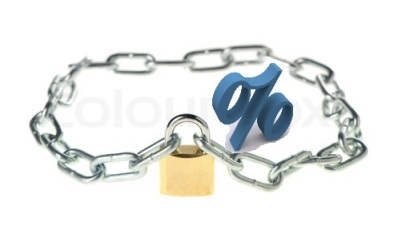Undoubtedly, the interest rate is the single most important factor associated with shopping for a mortgage. Even more important than closing costs, the interest rate can cost you hundreds of thousands of dollars over the term of the loan. It will also determines how much your monthly payment will be.
So, it’s important to understand the terminology associated with interest rates. To start with, asking for an interest rate quote from your bank does not guarantee you that rate. Rates change daily, if not hourly because they are subject to the jitters of the broader economy. Also, there are no guarantees.
Rates are not fixed by your lender!
Most quotes are generic and are rates published by the banks marketing department so it stands to reason it will be the lowest rate they offer. In order to get an accurate rate, you will have to formally apply for a mortgage.
Why?
Rates are subject to the factors of your personal financial situation such as credit score, the value of your home, your loan term and many other factors. Your lender will be unable to determine the rate until you give them those facts.
Just because you’ve taken your application and given the lender your financial information, you still might not have a commitment from them.

Getting a commitment from your lender means you must ‘lock’ in your rate. Locking in your rate has broad implications to your bank and so they are cautious until they have a good idea that you can and will go through with the loan.
When you agree to lock in a rate you are commonly agreeing to a few other things.
- The length of time the rate is locked for
- Any discount points involved.
The topic of discount points is one for another blog. In short, a discount point is an additional charge (above the origination charge) associated with securing that rate.
Beware! Your loan is not locked indefinitely .
As I’ve said above, rates are chaining constantly so your lender is unable to lock in your rate indefinitely. Typically, your rate is locked in for 30, 45, or 60 days. They can be locked in for other periods but these are standard. Make sure you know how long your rate is locked for. If you do not close on your loan before the rate expires, you may be subject to a higher rate or additional charges.
Locking is not the only option. If you have a higher appetite for risk, you can ‘float’ your rate. Floating means your rate is subject to change with the financial markets. You are ultimately responsible in this scenario (although a good loan officer will help you determine when it’s best to lock). If rates decrease, you will be able to take advantage of the lower rate. If rates increase, you may end up with a higher rate. Consult with your loan officer about the best strategy.
With a better understand of the rate locking process, you will be better able to ensure you get the rate you want. This knowledge will enable you to make the best choice for you.
.
Good luck!

